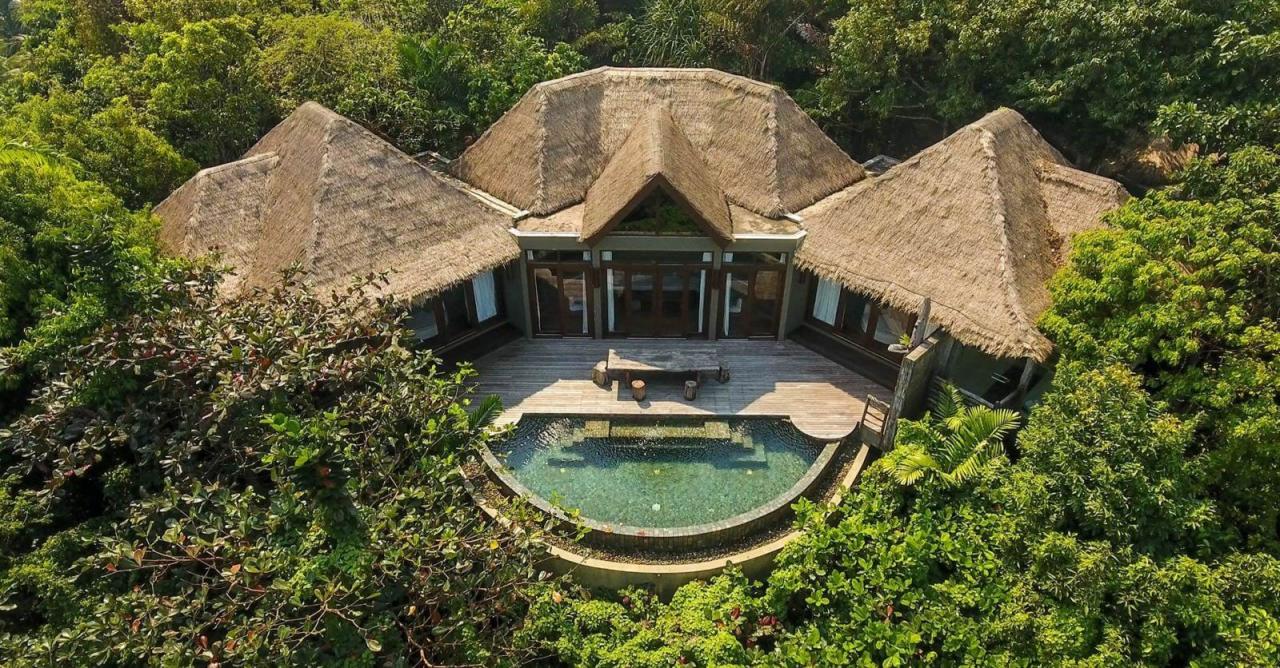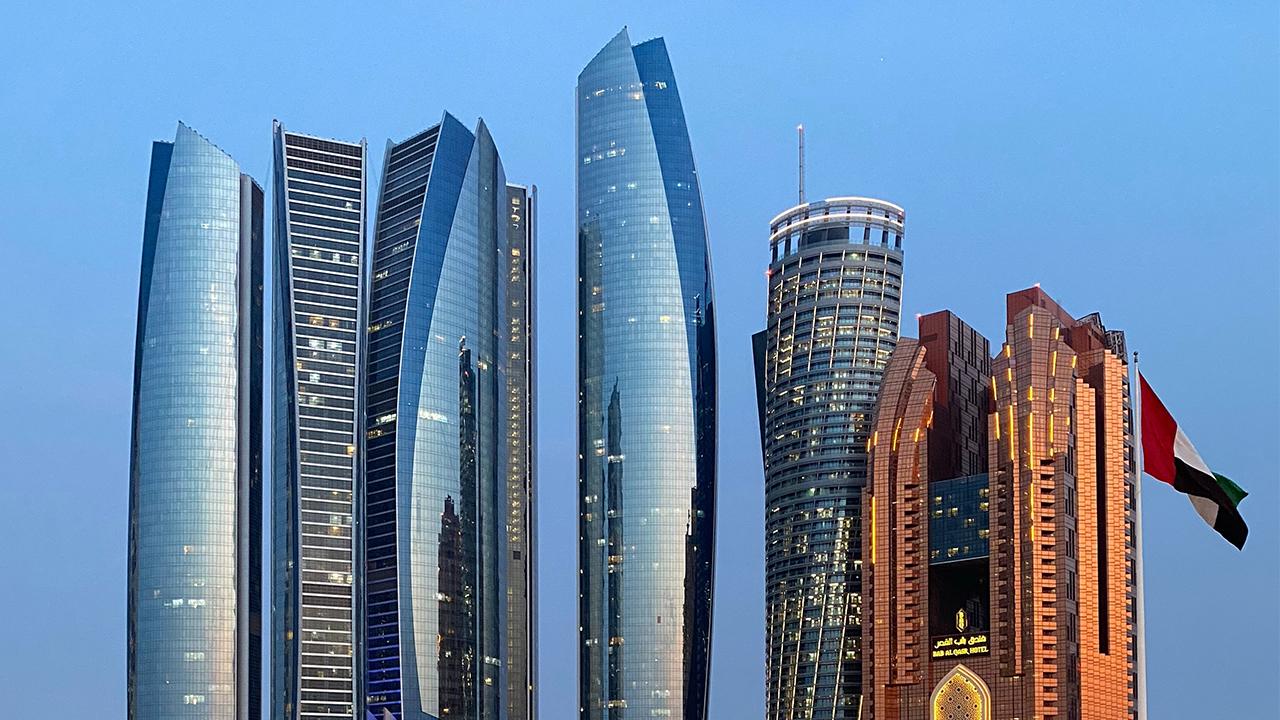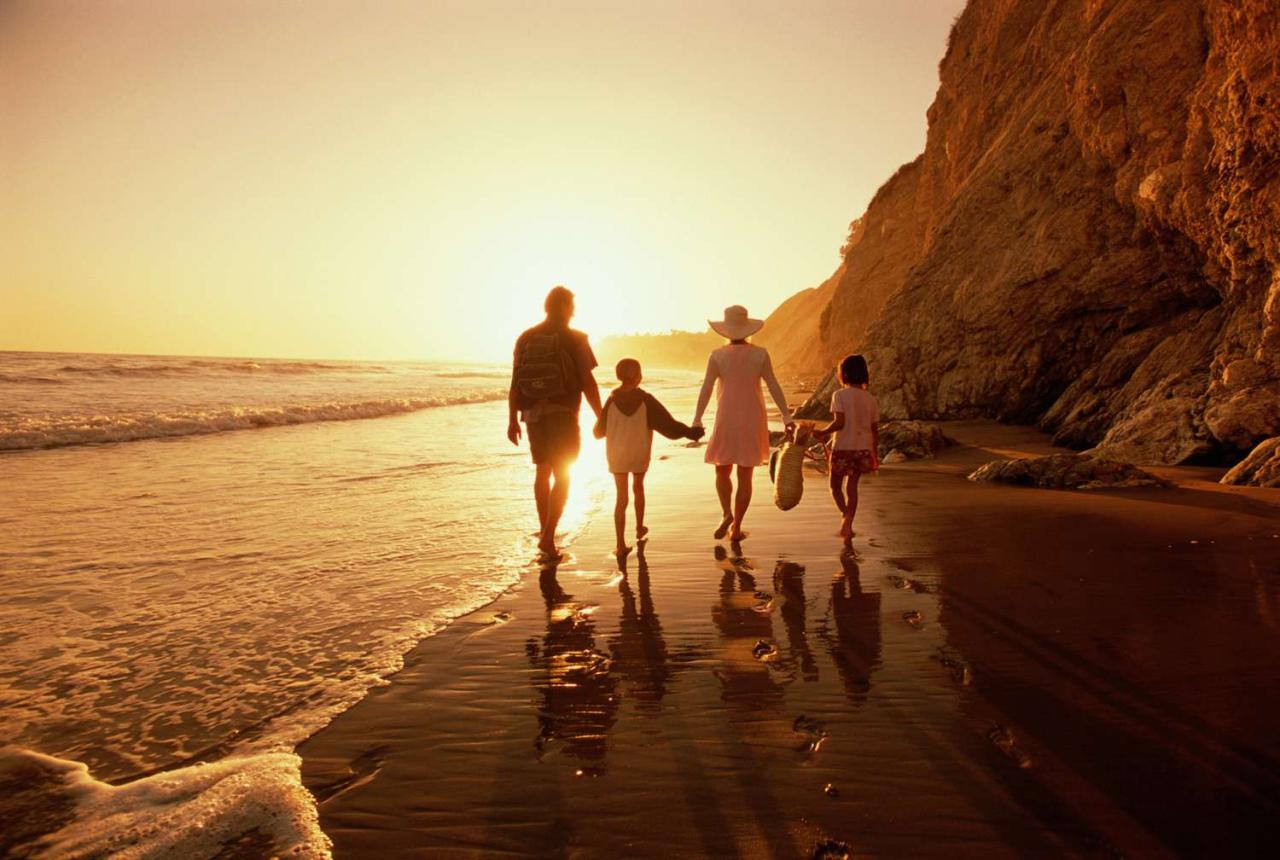The travel industry is undergoing a profound transformation, driven by a growing global consciousness about environmental sustainability and social responsibility. No longer a niche concept, eco-friendly resorts are experiencing an unprecedented boom, redefining luxury and offering travelers the chance to explore the world with a lighter footprint. This comprehensive article delves into the burgeoning world of sustainable hospitality, exploring what defines an eco-resort, why they are gaining immense popularity, and what the future holds for this vital sector. It’s a journey into how leisure can harmoniously coexist with environmental stewardship and community upliftment.
Understanding the Eco-Resort Revolution

The term “eco-friendly resort” signifies more than just a pretty garden or a recycling bin. It represents a holistic commitment to minimizing environmental impact and maximizing positive social contributions. This movement is a direct response to the increasing awareness of climate change, biodiversity loss, and the ethical implications of mass tourism. Discerning travelers are actively seeking destinations that align with their values, leading to a surge in demand for accommodations that prioritize planet and people alongside profit.
At its core, an eco-resort integrates sustainable practices across all facets of its operation, from design and construction to daily management and guest experiences. This often includes:
A. Sustainable Design and Construction: Utilizing local, renewable, or recycled materials, implementing passive cooling/heating techniques, and designing structures that blend seamlessly with the natural landscape rather than imposing upon it. This minimizes the carbon footprint from the ground up, reducing the need for artificial heating and cooling. Think of resorts built into cliffsides with minimal excavation, or those constructed primarily from reclaimed timber and bamboo. They often integrate natural ventilation systems and optimize for natural light to reduce reliance on electricity.
B. Energy Efficiency and Renewable Sources: Reducing energy consumption through efficient lighting, smart climate control systems, well-insulated buildings, and energy-efficient appliances. Beyond reduction, a significant investment in renewable energy sources like solar panels, wind turbines, micro-hydro systems, or geothermal heat pumps is crucial. Some resorts aim for net-zero energy consumption, generating all their own power. This not only reduces operational costs but also significantly lowers greenhouse gas emissions.
C. Water Conservation and Management: Implementing sophisticated water-saving technologies such as low-flow showerheads and toilets, sensor-activated faucets, rainwater harvesting systems for non-potable uses (like irrigation and toilet flushing), and on-site wastewater treatment plants that recycle greywater for landscaping. Desalination plants are sometimes used in coastal areas with responsible brine discharge, ensuring minimal environmental impact. The goal is to minimize freshwater consumption and prevent pollution of local water bodies.
D. Waste Reduction and Recycling: Adhering to rigorous waste management programs, including comprehensive recycling of plastics, glass, paper, and metal. Composting organic waste from kitchens and gardens for use as fertilizer is also common. A major focus is on significantly reducing or eliminating single-use plastics through initiatives like providing refillable water bottles, bulk dispensers for toiletries, and avoiding plastic packaging for amenities. This involves thoughtful procurement and guest education.
E. Local Sourcing and Sustainable Cuisine: Prioritizing locally grown, organic, and seasonal produce for their restaurants, significantly reducing “food miles” and supporting local farmers and economies. This often extends to sourcing sustainable seafood (certified by organizations like MSC) and ethically raised meats. Farm-to-table dining is a common hallmark, with some resorts even having their own on-site organic gardens or farms. This ensures freshness, supports biodiversity, and fosters unique culinary experiences.
F. Biodiversity Protection and Habitat Restoration: Actively engaging in conservation efforts, protecting local flora and fauna, and participating in habitat restoration projects within or around the resort’s property. This might include coral reef restoration programs, mangrove reforestation, wildlife monitoring, or establishing protected areas. They ensure their operations do not negatively impact sensitive ecosystems, often conducting environmental impact assessments.
G. Community Engagement and Support: A strong commitment to employing local staff, offering fair wages, providing training and skill development opportunities, and fostering equitable working conditions. Beyond employment, they often invest in local businesses by sourcing goods and services locally and supporting community development projects such as education, healthcare, infrastructure, and cultural preservation initiatives. This ensures that the economic benefits of tourism directly uplift the local population.
Why the Surge in Popularity?

Several converging factors are fueling the eco-friendly resort boom:
A. Growing Environmental Awareness
The undeniable realities of climate change, ocean plastic pollution, deforestation, and species extinction have heightened global environmental consciousness. Travelers, particularly younger generations (Millennials and Gen Z), are more informed through media and social channels, and increasingly seek ways to reduce their personal impact. They understand that their travel choices have consequences, and they want to be part of the solution, not the problem. This isn’t just about avoiding harm; it’s about actively contributing to positive change.
B. Demand for Authentic and Meaningful Experiences
Modern travelers crave more than just standard luxury; they seek unique, immersive, and meaningful experiences. Eco-resorts, by their very nature, often offer deeper connections to pristine natural environments, rich local cultures, and impactful conservation efforts. This resonates with a growing desire for travel that enriches the soul, expands perspectives, and leaves a lasting positive impression, rather than just superficial indulgence. Guests want to feel that their vacation dollars are supporting something good and that they are genuinely connecting with the destination.
C. The Rise of Conscious Consumerism
Consumers across almost all sectors are making purchasing decisions based on ethical considerations, demanding transparency and accountability from brands. This trend extends powerfully to travel, with individuals actively choosing businesses that demonstrate genuine social and environmental responsibility. Companies that genuinely embed sustainability into their core values, rather than just paying lip service, are gaining a significant competitive edge and building stronger brand loyalty.
D. Media Influence and Social Proof
The proliferation of documentaries (e.g., on climate change, ocean health), compelling social media content from travel influencers, and increased news coverage are highlighting both the urgency of environmental issues and the positive impact of sustainable initiatives. This increases public awareness of eco-friendly options and creates a strong sense of social proof, making green travel aspirational and encouraging more people to choose these options. Seeing beautiful, sustainable resorts featured online inspires others to follow suit.
E. Financial Viability and Innovation
While initially perceived as a cost-intensive endeavor, many sustainable practices are now proving to be financially beneficial in the long run. Investing in energy and water efficiency leads to significantly lower operational costs over time. Furthermore, the appeal to a rapidly growing market segment of conscious travelers often translates to higher occupancy rates, positive word-of-mouth, and even the ability to command a slight premium for genuinely sustainable offerings. Technological advancements are also making green solutions more accessible and affordable, reducing the barrier to entry for new developments.
F. Regulatory and Industry Pressure
Governments worldwide and international travel organizations (like the UNWTO, WTTC) are increasingly recognizing the importance of sustainable tourism. This leads to stricter environmental regulations, the introduction of carbon taxes, and the promotion of sustainable tourism practices through various incentives and guidelines. Industry bodies are also developing more robust and widely recognized certification programs (e.g., Green Globe, LEED, EarthCheck, GSTC) that provide a verifiable standard for eco-resorts, building crucial consumer trust and pushing the entire industry forward.
Hallmarks of a Truly Green Getaway
Identifying a genuine eco-resort amidst greenwashing – where companies falsely market themselves as environmentally friendly – can be challenging for travelers. Here’s what to look for, going beyond superficial claims:
A. Certifications and Accreditations
The most reliable indicator is reputable third-party certifications from globally recognized organizations such as Green Globe, LEED (Leadership in Energy and Environmental Design), EarthCheck, Travelife, or the Global Sustainable Tourism Council (GSTC) Criteria. These provide independent verification of a resort’s sustainability claims based on rigorous audits. Research what each certification entails and ensure it’s not just a self-issued label.
B. Transparent Communication
A truly eco-friendly resort will be transparent about its sustainability initiatives, its environmental policies, the challenges it faces, and its progress. They will often clearly share their environmental reports, community engagement strategies, and even their carbon footprint data on their website, in guest information, or through dedicated sustainability reports. They don’t just state “we are green”; they show how.
C. Integrated Environmental Management System
Evidence of a comprehensive and systemic approach to environmental management across all operations, not just a few token gestures. This includes detailed, written policies and measurable goals for waste reduction, water conservation, energy efficiency, sustainable purchasing, and biodiversity protection. They should actively track their performance against these goals and show continuous improvement.
D. Local Employment and Fair Wages
A strong and verifiable commitment to employing staff predominantly from the local community, providing fair wages (above minimum wage where possible), offering comprehensive training programs, and ensuring equitable working conditions and opportunities for career advancement. This ensures that the economic benefits of tourism directly and significantly uplift the local population and create a positive social impact.
E. Cultural Sensitivity and Preservation
A deep respect for and active integration of local culture, traditions, and heritage into the resort’s design, operations, and guest experiences. This might involve using traditional building techniques, showcasing local art and music, promoting local cuisine, and supporting cultural preservation projects. They actively avoid cultural appropriation and ensure interactions are respectful and beneficial to the local community.
The Transformative Guest Experience
Staying at an eco-friendly resort often provides a travel experience that transcends traditional luxury:
A. Deeper Connection with Nature
Many eco-resorts are strategically nestled in stunning and often protected natural environments – be it untouched rainforests, pristine beaches, towering mountains, or vibrant deserts. Guests can engage in immersive activities like guided nature walks led by local naturalists, ethical wildlife viewing (e.g., bird watching, marine life observation without disturbance), snorkeling or diving in protected marine areas, or even participating directly in conservation projects like tree planting or beach cleanups. This fosters a profound, hands-on connection to the natural world.
B. Authentic Cultural Immersion
By prioritizing support for local communities and genuinely integrating local traditions into their operations and guest offerings, these resorts provide unparalleled opportunities for genuine cultural exchange. This could involve participating in traditional cooking classes using local ingredients, visiting nearby local villages and markets, learning a craft from a local artisan, or experiencing authentic cultural performances. This provides insights into local life and customs rarely found in conventional, insulated resorts.
C. Health and Wellness Benefits
The inherent focus on natural surroundings, fresh, often organic and locally sourced food, and integrated wellness programs (such as yoga, meditation, nature therapy, and spa treatments using natural, sustainably sourced ingredients) contributes significantly to a sense of rejuvenation and holistic well-being. The clean air, reduced noise pollution, and connection to the natural environment itself can be deeply therapeutic, promoting mental clarity and physical restoration.
D. Peace of Mind and Purposeful Travel
Knowing that your vacation dollars are directly contributing positively to the environment and local communities provides a unique sense of peace and satisfaction. It’s guilt-free luxury that genuinely aligns with personal values, allowing travelers to enjoy their escape without concerns about their negative impact. This adds a profound sense of purpose to the travel experience.
E. Educational Opportunities and Inspiration
Guests often leave eco-resorts not just relaxed and refreshed, but also more informed, inspired, and often empowered about sustainable living practices. The educational initiatives offered by these resorts can spark a greater commitment to environmental stewardship and responsible consumption in their daily lives, long after their vacation ends. It’s a truly transformative and enriching journey.
F. Exclusive and Unique Experiences
Due to their focus on sustainability and local integration, many eco-resorts offer unique, bespoke experiences that are not available elsewhere. This could be exclusive access to protected natural areas, private workshops with local experts, or personalized wellness programs tailored to the guest’s specific needs, all designed with minimal environmental footprint.
Challenges and the Path Forward
While the eco-friendly resort boom is undeniably promising, significant challenges remain that the industry must address to ensure true sustainability and avoid mere superficial “green” claims:
A. Greenwashing
Perhaps the biggest hurdle is distinguishing genuinely sustainable resorts from those merely “greenwashing” – making misleading, exaggerated, or unsubstantiated claims about their environmental practices without substantial commitment or verifiable action. Rigorous, independent third-party certification and transparent public reporting are crucial to combat this and build consumer trust. Travelers must be vigilant and research beyond marketing slogans.
B. High Initial Investment
Building or retrofitting properties to high sustainability standards (e.g., installing solar arrays, advanced water treatment systems, using sustainable materials) can require significant upfront investment. This can be a barrier for smaller businesses or those with limited access to capital. However, it’s increasingly understood that long-term operational savings (from reduced energy and water bills) often offset these initial costs, alongside the marketing advantage.
C. Consumer Education and Awareness
Despite growing interest, many travelers still lack a deep understanding of what true sustainability entails beyond simple concepts like “recycling.” Educating consumers about the complexities of sustainable practices and empowering them to make informed choices based on genuine impact, rather than just aesthetics, is essential. This includes clear labeling and communication from resorts.
D. Complex Supply Chain Management
Ensuring that the entire supply chain – from food and beverages to linens, cleaning supplies, construction materials, and amenities – adheres to sustainable and ethical practices is incredibly complex. It requires continuous effort, rigorous auditing, and collaborative partnerships with suppliers who share the same values. Global supply chains often involve many intermediaries, making traceability difficult.
E. Scalability and Carrying Capacity
As demand for eco-tourism grows, ensuring that sustainable practices can be scaled to accommodate more visitors without compromising local resources, overwhelming fragile ecosystems, or negatively impacting host communities is a critical consideration. Responsible growth and adherence to carrying capacities are key to preventing overtourism and its detrimental effects.
The Future of Eco-Friendly Resorts
The eco-friendly resort boom is not a fleeting trend but a fundamental and enduring shift in the travel industry. The future will likely see:
A. Net-Positive Impact: Resorts moving beyond merely minimizing harm to actively contributing to the regeneration of ecosystems and communities. This could involve large-scale reforestation initiatives, marine permaculture projects that enhance biodiversity, significant investment in local social enterprises, or even becoming carbon-negative.
B. Integrated Wellness and Nature Therapy: A deeper and more sophisticated integration of health and wellness with nature-based therapies. Practices like forest bathing (shinrin-yoku), sound healing in natural environments, wilderness retreats, and specialized programs focused on reconnecting with the earth and fostering mental well-being will become more commonplace and refined.
C. Hyper-Localization and Authentic Experiences: An even stronger emphasis on deeply immersing guests in local culture, cuisine, and unique, authentic experiences that are profoundly rooted in the destination. Resorts will act as true gateways to genuine local life, offering bespoke interactions with community members, participation in local festivals, or learning traditional crafts.
D. Advanced Smart Technologies for Sustainability: Widespread adoption of Artificial Intelligence (AI), Internet of Things (IoT) sensors, and advanced data analytics to relentlessly optimize resource consumption (energy, water, food waste), predict guest preferences for efficiency, and enhance overall operational sustainability in real-time. Smart grids and predictive maintenance will be standard.
E. Transparent Reporting and Blockchain for Traceability: Greater and more immediate transparency in reporting sustainability metrics, potentially leveraging blockchain technology to provide immutable, publicly verifiable records of supply chains, environmental impact data, and community contributions. This will further combat greenwashing and build unprecedented trust.
F. Eco-Villages and Sustainable Living Labs: Some forward-thinking resorts may evolve beyond mere accommodation into full-fledged eco-villages or living laboratories, where guests can not only stay but also actively participate in workshops on sustainable living, permaculture, renewable energy technologies, or conservation science. This creates a truly transformative and educational experience.
Conclusion
The rise of eco-friendly resorts signals a new era of travel where luxury and responsibility are not mutually exclusive but profoundly intertwined. As travelers become increasingly aware of their global impact, the demand for authentic, sustainable, and ethically operated accommodations will continue to grow exponentially. These resorts offer more than just a place to stay; they offer an opportunity for guests to contribute positively to a better world, providing invaluable peace of mind alongside unparalleled natural beauty, authentic cultural immersion, and truly transformative experiences. The boom of eco-friendly resorts is not just good for the planet; it’s redefining the very essence of a meaningful and memorable journey, pushing the entire hospitality sector towards a more sustainable future. Choosing an eco-resort is choosing to travel with purpose and actively participate in a global movement for good.
Category: Sustainable Travel













